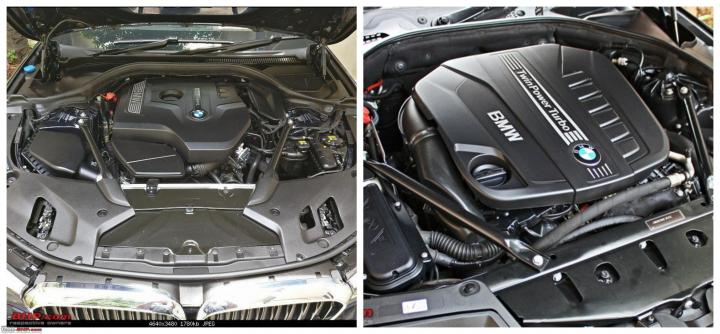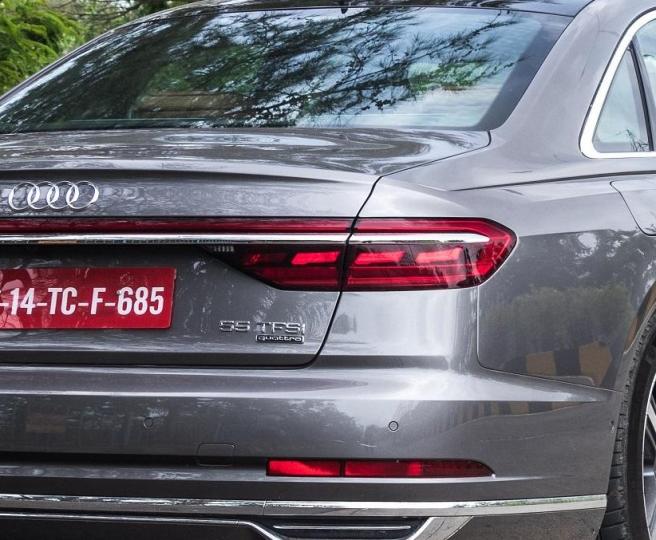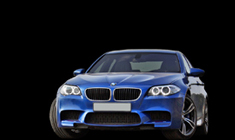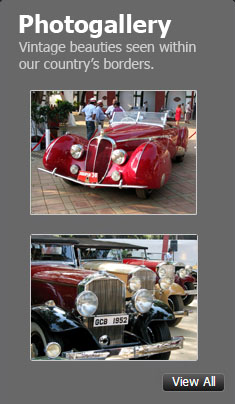News
German Luxury Cars : Turbo-Diesel vs Turbo-Petrol
When it comes to German cars, we have traditionally preferred the turbo-diesels. There are good reasons for that. The monstrous torque is addictive and the diesels are generally more robust + reliable than their petrol counterparts. Besides, they run on regular diesel just fine (unlike a few performance petrols which need high octane fuel) and their superior fuel efficiency (30 - 100% higher) results in a longer highway tank range. Finally, when it comes to selling the car, it is generally easier to sell a diesel than a petrol version of high-end cars. Put that down to the FE-obsession which is part of every Indian's DNA.
Now though, times have changed. Companies like Audi, BMW and Mercedes are offering fantastic, exciting turbo-petrol engines (related thread). Naturally-aspirated petrols have all but disappeared from luxury cars.
Let's have a look at the BMW 530i and 530d. BMW is offering the 530i which comes with a 2.0L, 4-cylinder turbo-petrol that puts out 249 BHP and 350 Nm. It can do the 0-100 km/h sprint in 6.1 seconds. On the other hand, the 530d is powered by a 3.0L, 6-cylinder turbo-diesel that develops 262 BHP and 620 Nm. It can go from 0-100 km/h in 5.7 seconds. This looks like a walkover for the turbo-diesel. However, the petrol is not slow by any means and when you consider the price, it makes it a tempting option. The 530i M-Sport costs Rs. 60.90 lakhs - a good Rs. 7.50 lakhs lesser than the 530d M-Sport. You can save a lot more if you opt for the 530i Sport which costs Rs. 55.40 lakhs (6-cylinder diesel isn't sold in the lesser variant).
Staying with BMW, lower in the line-up are the 330i and 320d. The 330i is powered by a 2.0L, 4-cylinder turbo-petrol that puts out 254 BHP and 400 Nm. It can go from 0-100 km/h in 5.8 seconds. The 320d is powered by a 2.0L, 4-cylinder turbo-diesel that makes 187 BHP and 400 Nm. It can sprint from 0-100 km/h in 6.8 seconds. This makes the turbo-petrol a quicker car than the diesel! The price makes it an even sweeter option. The 330i Sport costs Rs. 42.90 lakhs, which is Rs. 50,000 lesser than the 320d Sport. It is only the 330i M-Sport that, at Rs. 49.30 lakhs, is Rs. 1 lakh more expensive than the 320d Luxury Line.
Coming to Mercedes-Benz, the company is offering the C200 and C200d. Both cars some with 2.0L, 4-cylinder engines. The petrol in the C200 puts out 200 BHP, while that in the diesel develops 191 BHP. With a 0-100 km/h time of 6.9 seconds, the diesel is 0.8 seconds quicker than the petrol. At an ex-showroom price of Rs. 41.31 lakhs, the petrol is over 2 lakhs cheaper than the turbo-diesel which is priced at Rs. 43.38 lakhs.
If you like the Audis, your choice is simple as the brand only offers turbo-petrols now. The VW Group still hasn't made its diesels BS6-compliant.
The turbo-petrol engine has quite a few advantages over the diesel. To start with, a turbo-petrol revvs higher, which makes it more delightful to drive. The sheer pleasure of taking an engine to 6,500 - 7,000 rpm is something that diesel-heads can only dream about. The refinement is way superior too with lesser engine noise & vibrations coming into the cabin. Even when you can hear the turbo-petrol engine inside the cabin, it is almost certainly going to be better sounding than the diesel. Besides these points, with 10-year old diesels being outlawed in certain parts of the country (Delhi-NCR), the turbo-petrol might be the only logical option for you if you hold onto your cars for long, as a majority of BHPians do.
At the same time, the turbo-petrol has its disadvantages compared to the turbo-diesel. The fuel efficiency is lesser than that of the diesel and due to that, we are willing to bet that the resale value will be lower. When travelling out of the big cities, the quality of diesel available at pumps might be better than that of petrol. Those of you who prefer a 6-cylinder engine, a diesel is the only option for you.























